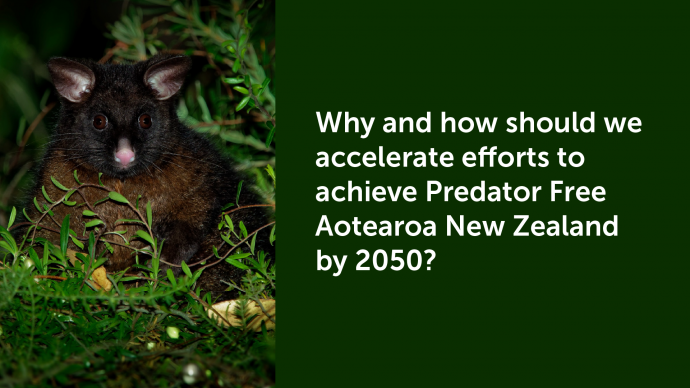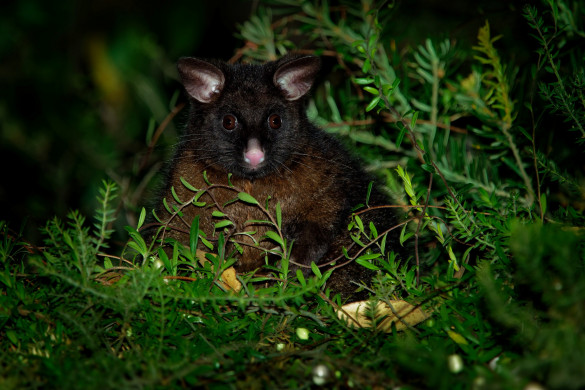Expert perspective: Professor Peter Dearden

Professor Peter Dearden, a geneticist interested in evolution and development, calls for a hybrid model of deploying technology and researching novel approaches for pest control.
"Should we achieve a predator free New Zealand? Absolutely, yes. As geneticists working in conservation, we're called in when others are trying to conserve very small populations. It usually becomes clear in about the first five minutes that the problem isn't about the small population, it's that either that small population has nowhere to go or that it is also being dealt to by predators.
The kākāpō breeding programme was remarkably successful – but where are they putting all these kākāpō? Are we prepared to put kākāpō out in places where they're not safe and where predators can eat them?
In our West Coast forests, wasps basically eat every other insect. Ecological experiments show that the probability that a spider will go from egg to adulthood during wasp season is 0.0. Our native insects being eaten creates an environment that is out of kilter. The only clear response we have is to make those areas wasp, rat and possum free. Suddenly, all our native species will come back. We know this works because of places like Zealandia.
I don't know if it's possible to go predator free for the whole country, but we certainly should be making all our offshore islands predator free, and as much of the mainland as we can.
With current technology and investment in personnel, we could eradicate possums and stoats. However, I don't think we will kill wasps using current technologies effectively, nor eradicate rats.
We need a hybrid model. There needs to be good research into novel approaches for species where we don't have good technology, and investment in personnel for species where we have the tools. It would be almost criminal to know how to clear stoats out of areas and then not do it while our native species are being eaten.
The Predator Free mission has been remarkable. Making Wellington's Miramar Peninsula rat-free is incredible - nobody else has achieved that in an urban area. However, we are not on track because of a lack of ambition from policymakers. If we could make Stewart Island predator free, the benefit for our native species would be a huge advantage and an enormous tourist attraction.
Predator Free 2050's mission is also too limited. You need to kill wasps and control other things that deform our environment, like Caulerpa outbreaks, wild ginger, and other weeds.
New predators continue to enter our ecosystem. We've seen a paper wasp species recently make a home here that specialises in eating Lepidoptera (winged insects including moths and butterflies). The country is filling up with invasives - we have more invasive insect species than the whole of Europe.
By 2050, I'm hopeful there can be large areas and offshore islands that will be predator free. The problems come with the main islands - you either need predator control everywhere or predator-proof fences, which are incredibly expensive and logistically impossible in places like the Southern Alps. I hope to see at least all our national parks predator free as a stepping stone.
Predator Free 2050 won't return New Zealand to a pristine state, but it might put us in a place where the environment will hold those species that we treasure."
Published May 2025
 Professor Peter Dearden is a geneticist interested in evolution and development, animal genomics, and honeybee population management. He is the head of Otago University’s biochemistry department and co-director of Genomics Aotearoa. He has investigated the use of genetic modification technology and its possible contribution to the Predator Free 2050 goal. The Society awarded him the Callaghan Medal for science communication.
Professor Peter Dearden is a geneticist interested in evolution and development, animal genomics, and honeybee population management. He is the head of Otago University’s biochemistry department and co-director of Genomics Aotearoa. He has investigated the use of genetic modification technology and its possible contribution to the Predator Free 2050 goal. The Society awarded him the Callaghan Medal for science communication.

